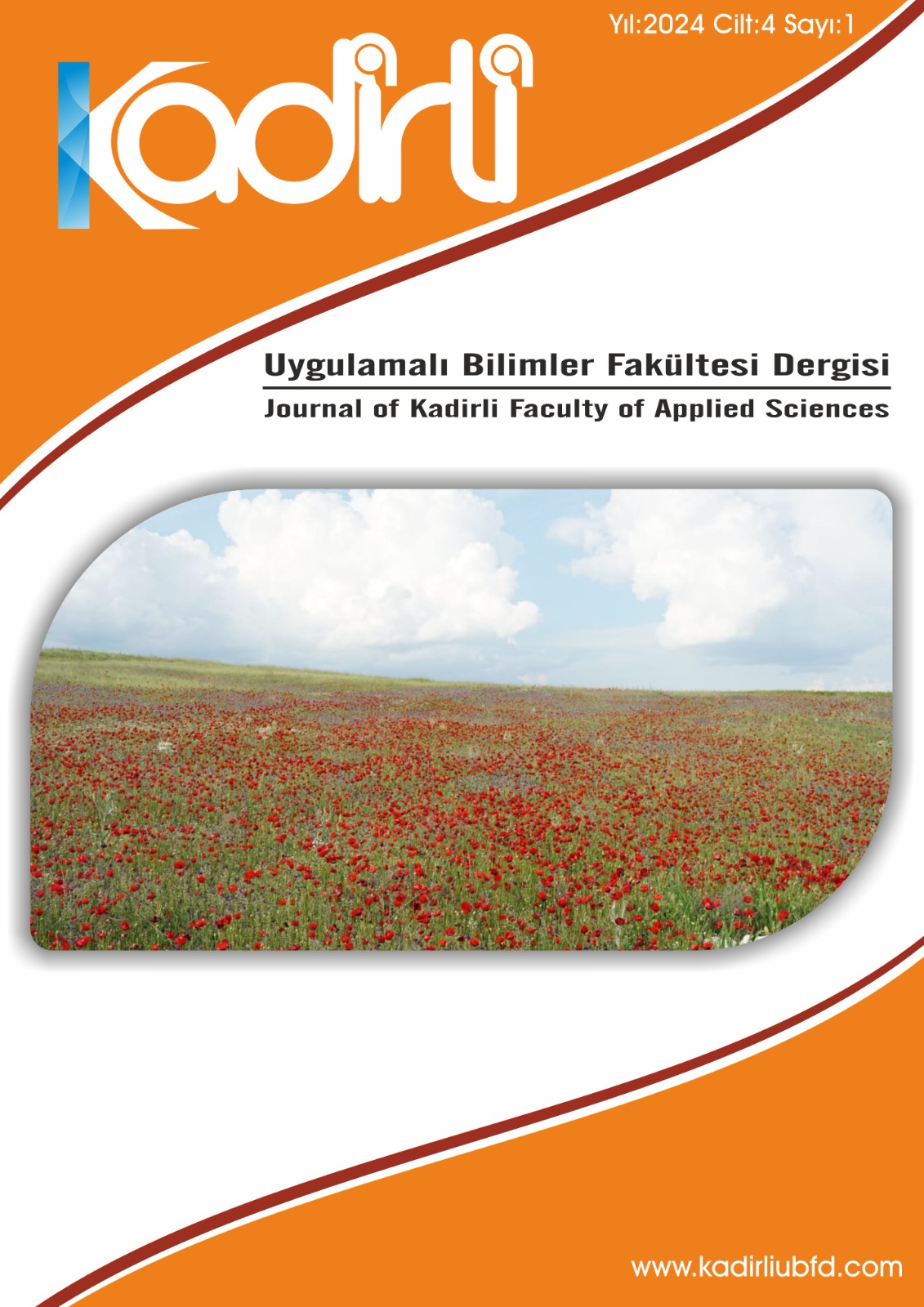Sıfır Atık İndeksi Kullanılarak Türkiye’deki Kentsel Katı Atık Yönetiminde Sıfır Atık Yaklaşımının İncelenmesi
Anahtar Kelimeler:
Atık yönetimi, Sıfır Atık, Sıfır Atık İndeksi, Geri dönüşüm, TürkiyeÖz
Doğal kaynakların hızla tüketilmesi ve iklim değişikliğinin yıkıcı sonuçları, hem kaynak kullanımının hem de atık yönetiminin doğru planlanması gerekliliğini ortaya koymaktadır. SA (SA) kavramı, meydana gelen tüm bu problemlerin çözümüne odaklanan bir strateji sunmaktadır. SA projesinin Türkiye’de yaygınlaşmasıyla, 2035’e kadar geri kazanımın %60’a çıkarılması hedeflenmektedir. Ülkemizin SA ile ilgili hedefleri dikkate alındığında; atık yönetim performansını değerlendirme aracı olan SA indeksi (SAİ)’nin rolü oldukça kritiktir. Bu çalışmada, Türkiye’nin 7 bölgesinin TÜİK 2020 verilerine göre en kalabalık illeri olan Ankara, Antalya, İstanbul, İzmir, Samsun, Şanlıurfa ve Van seçilerek bu illerin kötümser (atık geri dönüşümü yapılmadan sadece nüfus artışına bağlı) ve iyimser (atık yönetimi 2035 yılı hedefindeki %60 atık dönüşüm verimine dayalı)şema olmak üzere iki farklı senaryoya göre 2035 yılı için SAİ değerleri hesaplanmıştır. Elde edilen veriler; 2020 yılı kötümser senaryoya göre Ankara, Antalya, İstanbul, İzmir, Samsun, Şanlıurfa ve Van illeri için sırasıyla 0,27, 0,18, 0,06, 0,16, 0,15, 0,17 ve 0,15 iken 2035 yılındaki kötümser ve iyimser senaryolara göre SAİ değerleri sırasıyla 0,22-0,30; 0,25-0,40; 0,04-0,32; 0,23-0,36;0,24-0,29; 0,25-0,45 ve 0,24-0,31 olarak hesaplanmıştır. Yanı sıra, SAİ, kentsel katı atık kaynaklardan kaynak geri kazanımı sayesinde sera gazı, potansiyel enerji ve su tasarrufu tahmininde de kullanılmıştır. Mevcut çalışmada elde edilen veriler dikkate alındığında, SAİ’nin yenilikçi bir araç olarak SA kapsamında atık yönetim performansının iyileştirilmesi ve malzemelerin ikamesinde kullanılabileceği öngörülmektedir.
İndir
Yayınlanmış
Nasıl Atıf Yapılır
Sayı
Bölüm
Lisans
Telif Hakkı (c) 2024 Kadirli Uygulamalı Bilimler Fakültesi Dergisi

Bu çalışma Creative Commons Attribution-NonCommercial-ShareAlike 4.0 International License ile lisanslanmıtır.






